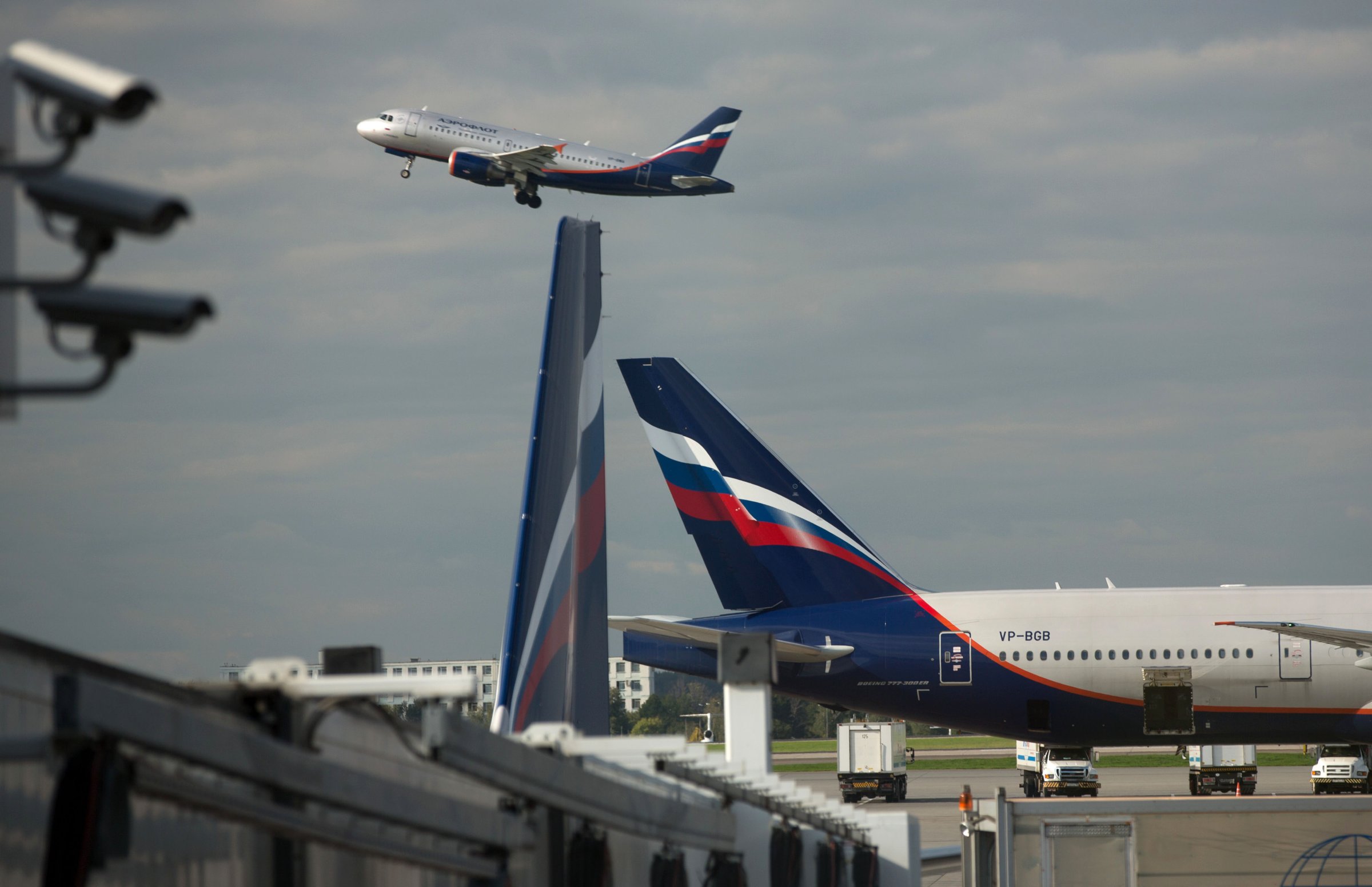
Russia at one point seemed to be embracing the West, and the transformation that came as a natural result. After the unraveling of the Soviet Union in 1991, politics became democratic and the economy capitalist. The Cold War was relegated to history books and outdated spy movies. Separated by ideology and fear no more, the economies of Russia and Europe became closely intertwined. The G7 turned into the G8.
But these days, Russia seems to be reversing course. Politics have slipped back into near-authoritarianism under President Vladimir Putin. Moscow is striving to reassert the influence it once held over its neighborhood during Soviet days. Sanctions and ill-will are again isolating the Russian economy from the West. I recently bought a T-shirt in Moscow sporting a picture of Vladimir Putin karate-kicking Barack Obama. The ideas and attitudes of the USSR have proven hard to change.
That seems to be the case at Aeroflot, the nation’s main airline, as well. During Soviet times, the name Aeroflot was synonymous with gruff flight attendants and dilapidated aircraft. But the airline has mustered ambitions to become a major international carrier, and has made tremendous progress upgrading its fleet and modernizing its services. It joined the SkyTeam alliance, which includes Delta and Korean Air.
But as my wife and I found out, Russia’s national carrier, much like the nation itself, is apparently having some trouble shaking off its past.
A week ago, we arrived at Moscow’s Sheremetyevo airport to check into our flight back home to Beijing only to be told that we no longer had seats on the plane. The flight was overbooked and we had been bumped off. We are seasoned travelers, and in our experience, when flights are overbooked the airline usually asks for volunteers to surrender their seats, sweetening the request with some nominal financial benefit. If Aeroflot went through such a process, we weren’t involved, and when we raised the possibility of seeking volunteers, we were ignored. Apparently, the staff had determined who lost their seats in advance, and that was that.
Aeroflot’s decision, however, put us in a tight spot. Not only did we both have to be at work the next morning, but our visas were also expiring that night, so the delay would cause us to remain in the country too long. We explained our predicament to the Aeroflot staff, but nevertheless, they booked us onto another flight the next day. Then they demanded we sign documents agreeing to the change. When we continued to protest, one of the Aeroflot staffers told my wife we had 15 minutes to accept the new tickets or else he would call the police, have us thrown in jail for a visa violation and abandon us to deal with the consequences without the aid of the airline.
Left with the stark choice of prison or a delayed departure, we signed the papers and took our replacement tickets. However, what we weren’t told by Aeroflot is that we would not be able to move freely in the city, the airport or even a hotel until the boarding time of our new flight. The airline placed us in a special section of a Novotel hotel with a guard posted outside the door.
We were not allowed to leave the immediate area of our room, even to go to the hotel coffee shop, nor to order our own food. Breakfast boasted bread and spoiled yogurt but no coffee. Basically, we were locked away as if we had overstayed our visas, when we had not. The airline forced us into a situation in which we were treated as criminals.
We got a pretty good idea of how Edward Snowden must have lived during his first days in Russia. After arriving at the same Moscow airport, Snowden, too, was held in this travelers’ no-man’s land in a hotel not far from our own.
When I asked Aeroflot’s press officers about our case, they responded that “the procedure was completed in full compliance with the company’s rules and regulations.” The press managers added that “there were no offending words or any intimidations at your address [sic]” and that the Aeroflot staff employed “the persuasion approach” to resolve the problem.
As to the conditions at the hotel, they wrote that “there were no negative feedbacks received about the quality of service provided.” In addition, Aeroflot said that “we have taken the decision to organize additional training sessions for our ground personnel which will include the imitations of similar situations [sic].”
That might help. But if Aeroflot intends to shed its old reputation, it might want to ditch its Soviet practices along with its Soviet planes.
More Must-Reads from TIME
- Introducing the 2024 TIME100 Next
- The Reinvention of J.D. Vance
- How to Survive Election Season Without Losing Your Mind
- Welcome to the Golden Age of Scams
- Did the Pandemic Break Our Brains?
- The Many Lives of Jack Antonoff
- 33 True Crime Documentaries That Shaped the Genre
- Why Gut Health Issues Are More Common in Women
Contact us at letters@time.com